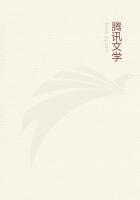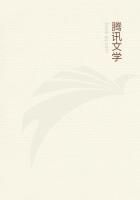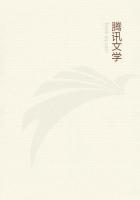To me, at all events--I thought--the words realism, realistic, have no longer reference to technique, for which the words naturalism, naturalistic, serve far better. Nor have they to do with the question of imaginative power--as much demanded by realism as by romanticism. For me, a realist is by no means tied to naturalistic technique--he may be poetic, idealistic, fantastic, impressionistic, anything but--romantic; that, in so far as he is a realist, he cannot be. The word, in fact, characterises that artist whose temperamental preoccupation is with revelation of the actual inter-relating spirit of life, character, and thought, with a view to enlighten himself and others; as distinguished from that artist whom I call romantic--whose tempera mental purpose is invention of tale or design with a view to delight himself and others. It is a question of temperamental antecedent motive in the artist, and nothing more.
Realist--Romanticist! Enlightenment--Delight! That is the true apposition. To make a revelation--to tell a fairy-tale! And either of these artists may use what form he likes--naturalistic, fantastic, poetic, impressionistic. For it is not by the form, but by the purpose and mood of his art that he shall be known, as one or as the other. Realists indeed--including the half of Shakespeare that was realist not being primarily concerned to amuse their audience, are still comparatively unpopular in a world made up for the greater part of men of action, who instinctively reject all art that does not distract them without causing them to think. For thought makes demands on an energy already in full use; thought causes introspection; and introspection causes discomfort, and disturbs the grooves of action. To say that the object of the realist is to enlighten rather than to delight, is not to say that in his art the realist is not amusing himself as much as ever is the teller of a fairy-tale, though he does not deliberately start out to do so; he is amusing, too, a large part of mankind. For, admitted that the abject, and the test of Art, is always the awakening of vibration, of impersonal emotion, it is still usually forgotten that men fall, roughly speaking, into two flocks: Those whose intelligence is uninquiring in the face of Art, and does not demand to be appeased before their emotions can be stirred; and those who, having a speculative bent of mind, must first be satisfied by an enlightening quality in a work of Art, before that work of Art can awaken in them feeling. The audience of the realist is drawn from this latter type of man; the much larger audience of the romantic artist from the former; together with, in both cases, those fastidious few for whom all Art is style and only style, and who welcome either kind, so long as it is good enough.
To me, then--I thought--this division into Realism and Romance, so understood, is the main cleavage in all the Arts; but it is hard to find pure examples of either kind. For even the most determined realist has more than a streak in him of the romanticist, and the most resolute romanticist finds it impossible at times to be quite unreal. Guido Reni, Watteau, Leighton were they not perhaps somewhat pure romanticists; Rembrandt, Hogarth, Manet mainly realists;Botticelli, Titian, Raphael, a blend. Dumas pere, and Scott, surely romantic; Flaubert and Tolstoy as surely realists; Dickens and Cervantes, blended. Keats and Swinburne romantic; Browning and Whitman--realistic; Shakespeare and Goethe, both. The Greek dramatists--realists. The Arabian Nights and Malory romantic. The Iliad, the Odyssey, and the Old Testament, both realism and romance.













